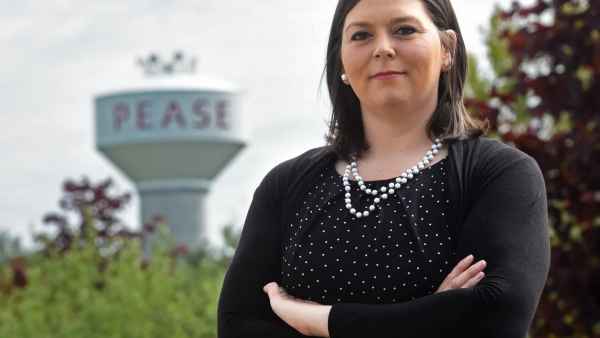Pease study report: PFAS levels elevated but decreasing for people exposed
PORTSMOUTH — Adults and children who participated in the Pease Health Study had “significantly higher concentrations” of a variety of PFAS chemicals in their bodies than the general United States population.
That’s according to the first report on the study, which examined a group of adults and children who were exposed to contaminated drinking water at the former Pease Air Force Base.
But when comparing results to the earlier 2015-2017 state blood testing program results, the exposed participants “had lower concentrations of all PFAS analytes,” according to the report released Friday by the Centers for Disease Control and Prevention and Agency for Toxic Substances and Disease Registry.
The report states “a possible explanation for these lower concentrations is the expected breakdown of the chemicals in the body over time.”

“The contaminated drinking water exposure occurred prior to the well being shut down in 2014. After PFAS enter the human body, some PFAS can remain there for a long time — sometimes years,” the report states.
The city of Portsmouth closed its Haven well in 2014 when it became contaminated with PFAS chemicals from firefighting foam used at the former Air Force base.
The report also states that “a core aim of the Pease Study was to evaluate the associations between specific health effects and serum PFAS concentrations among those exposed to PFAS-contaminated drinking water at Pease."
However, “these analyses are underway, and results will be presented at future community meeting(s) and in peer-reviewed publications,” according to the report, which was released by U.S. Sen. Jeanne Shaheen’s office.
It is unclear when that second part of the report will be released.
Shaheen fought for and successfully got the money approved for the Pease study, and an associated larger multi-site study.
The report concludes “this study demonstrates that the protocol was feasible, and that the order and administration of certain study activities could be adjusted, if needed.”
Thousands of people working at Pease International Tradeport, along with children and infants who attended two day cares there, were exposed to multiple PFAS chemicals from contaminated water.
In addition to being a suspected carcinogen, PFAS exposure can harm childhood development, increase cholesterol levels, hurt the immune system and interfere with human hormones, according to the Agency For Toxic Substances and Disease Registry (ATSDR).
“Once again, New Hampshire is leading the way to advance our understanding of the health impacts of PFAS. Understanding these impacts is crucial to developing effective policy, and that’s why I fought so hard to establish this study," Shaheen said in a prepared statement. "I am very grateful to all the participants who took part and I am eager to see further results. I look forward to continuing to support ATSDR’s ongoing work to analyze the data of the Pease and Multi-Site Study so we can continue to find new ways to best support those impacted by PFAS.”
Portsmouth activist happy study results are released
Portsmouth mother and activist Andrea Amico lobbied relentlessly for the initial round of blood tests and the Pease Health Study after so many in the Seacoast were exposed to the contaminated water at the Pease International Tradeport.
Reached Friday, Amico said she’s “grateful that the first part of the Pease study results are now available to the community.
“I am reassured to see that the community's PFAS levels in their blood have dropped over time. However, I remain hyper aware that some of the PFAS levels in the community's blood remain elevated when compared to the average American,” she said. “I look forward to additional information and community results from the Pease study in the future to better inform our community about how PFAS may have impacted or will impact our health.”
She added the Pease study results “will provide meaningful information to our highly exposed community and millions of Americans across the nation.”
“I am grateful that our community data will be combined with a larger multi-site study on PFAS taking place nationwide,” she said. “The impacts of PFAS on human health is an area of science that continues to evolve and I am honored that our community is the first site to participate in this nationwide study.”
Public meeting on Pease study coming up
The Centers for Disease Control and Prevention and ATSDR will be holding a community meeting about their initial report on Tuesday, Jan. 30.
The meeting will start at 6 p.m. and will be held in the city’s Community Campus Movie Room at 100 Campus Drive.
People can also watch the meeting on Zoom video conference. To get information on watching the virtual meeting, visit atsdr.cdc.gov/pfas/activities/ pease/cap.html.
This article originally appeared on Portsmouth Herald: Pease study report: PFAS elevated but decreasing for people exposed
